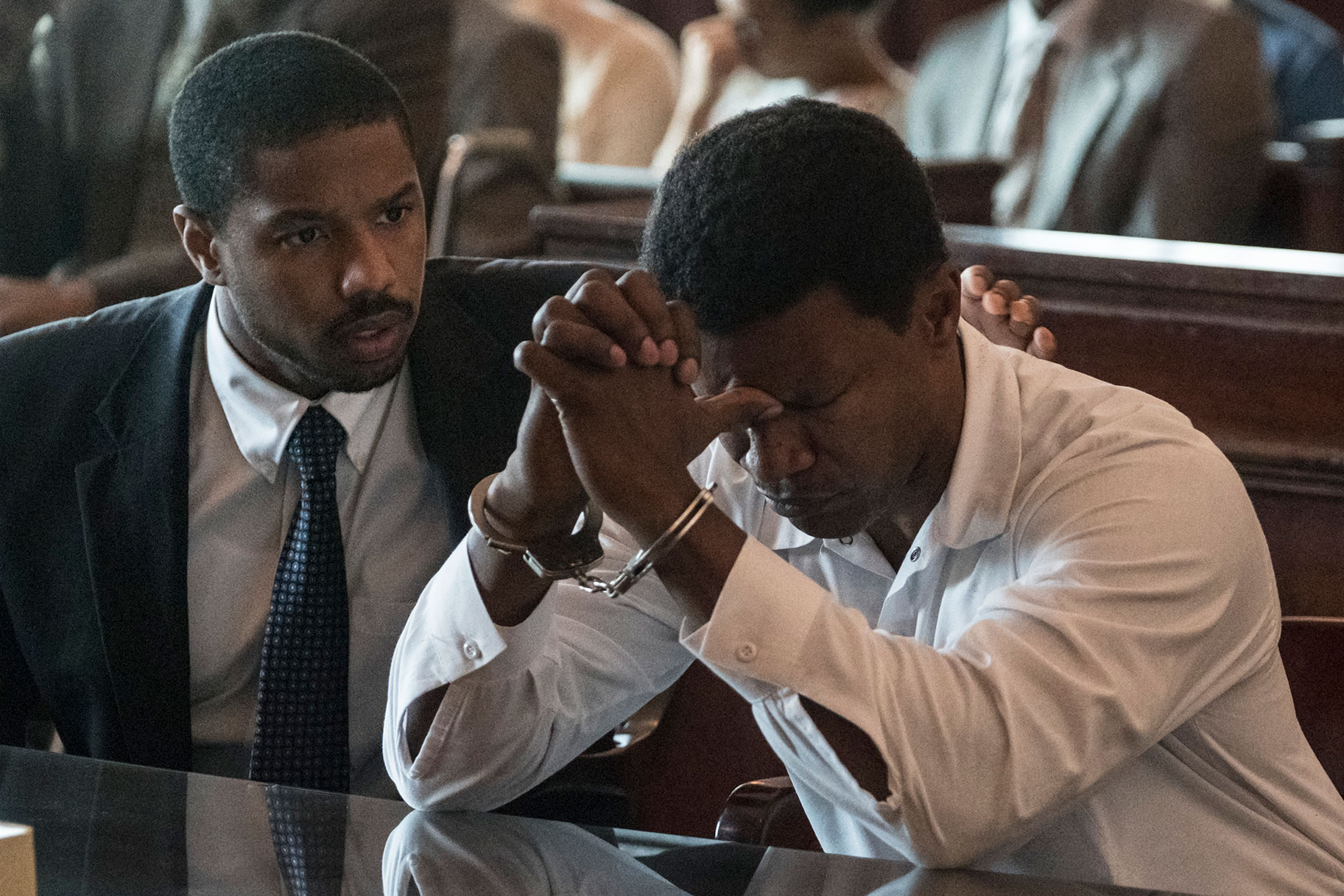Create a free profile to get unlimited access to exclusive videos, breaking news, sweepstakes, and more!
Yes, ‘Just Mercy' Starring Michael B. Jordan Is Based On A Jaw-Dropping True Story
In the film "Just Mercy," attorney Bryan Stevenson fights for one of his first-ever clients, Walter McMillian, who was wrongfully convicted of killing a young white woman named Ronda Morrison.

*Spoilers for "Just Mercy" below*
“Just Mercy,” a film about a Southern black man who was exonerated after spending years on death row, tells a truly powerful story, painting the man's painful journey to freedom thanks to the help of a lawyer dedicated to fighting injustice.
It's a feel-good movie about taking on the unfairness of the world that's perfect for the holidays — but is it real or is it just as fictional as “It’s a Wonderful Life"?
Maybe this will restore some of your faith in humanity because yes, “Just Mercy” is very much based on a true story.
The movie is based on Bryan Stevenson’s 2014 New York Times best-selling memoir, “Just Mercy: A Story of Justice and Redemption.” Stevenson is the real-life attorney (played by Michael B. Jordan in the film) who took on the case of wrongfully convicted rural Alabama black woodcutter Walter McMillian (played by Jamie Foxx).
The film’s trailer shows Stevenson meeting McMillian while he's behind bars. A frustrated McMillian slams the table and yells that in Alabama, “You’re guilty from the moment you’re born.”
What he's referring to is the systemic issues related to race and poverty which landed him behind bars for a murder he didn’t commit.
White dry-cleaning employee Ronda Morrison, 18, had been strangled and fatally shot multiple times at the Jackson Cleaners in Monroeville, Alabama in 1986 and McMillian was wrongfully fingered for it, according to court paperwork.
McMillian had an alibi for the murder. In fact, he had dozens. He was at a fish fry, according to a Washington Post book review of “Circumstantial Evidence: Death, Life, and Justice in a Southern Town,” which details the case.
But McMillian was known around town for having an affair with a white woman, according to the National Registry of Exonerations.
A sheriff told McMillian, according to "Circumstantial Evidence," "I don't give a damn what you say or what you do. I don't give a damn what your people say either. I'm going to put twelve people on a jury who are going to find your goddamn black ass guilty."
He was indeed found guilty, after only a day and a half long trial, in 1987, according to the National Registry of Exonerations.
The state's strongest witness, Ralph Bernard Myers, claimed he drove McMillian to the dry cleaners and watched him go into the establishment after stating he had to "take care of some business," according to court paperwork. The white witness and career criminal said he heard "popping noises" before he witnessed McMillian taking money from the business, as well as a woman lying on the ground.
Myers later admitted he was never there. He confessed he was lying and claimed law enforcement pressured him to lie and testify against McMillian. There was even taped evidence of him complaining about feeling forced to implicate McMillian, according to the National Registry of Exonerations.
Two other witnesses claimed they saw McMillian's truck around town around the time of the killing, according to the National Registry of Exonerations.
This differs from the depiction of the trial in "Just Mercy," which features only one witness who claimed to have seen McMillian's truck. A 1993 New York Times report mentions that there were two other witnesses in addition to Myers but they only specified that one of those two saw the truck.
“Three witnesses testified against Mr. McMillian and the jury ignored multiple alibi witnesses, who were black, who testified that he was at a church fish fry at the time of the crime,” the Equal Justice Initiative, a human rights organization based in Montgomery, Alabama which Stevenson founded, states. “The trial judge overrode the jury’s sentencing verdict for life and sentenced Mr. McMillian to death.”
Stevenson took on McMillian’s case post-conviction, and proved that the prosecution’s star witness had lied on the stand. He had found and used the tape recording of Myers talking about being pressured as evidence.
He also proved that the two witnesses who said they saw Stevenson's truck could have not seen his truck at all because they described it as a low-rider truck and Stevenson didn't convert his truck into a low-rider vehicle until months after the murder, according to the National Registry of Exonerations.
McMillian’s case was one of Stevenson’s first cases ever, and as the movie will show (spoiler!), he nailed it. McMillian’s conviction was overturned by the Alabama Court of Criminal Appeals in 1993, according to the 1993 New York Times report.
McMillian died in 2013.
The film hits theaters on Christmas Day.

























